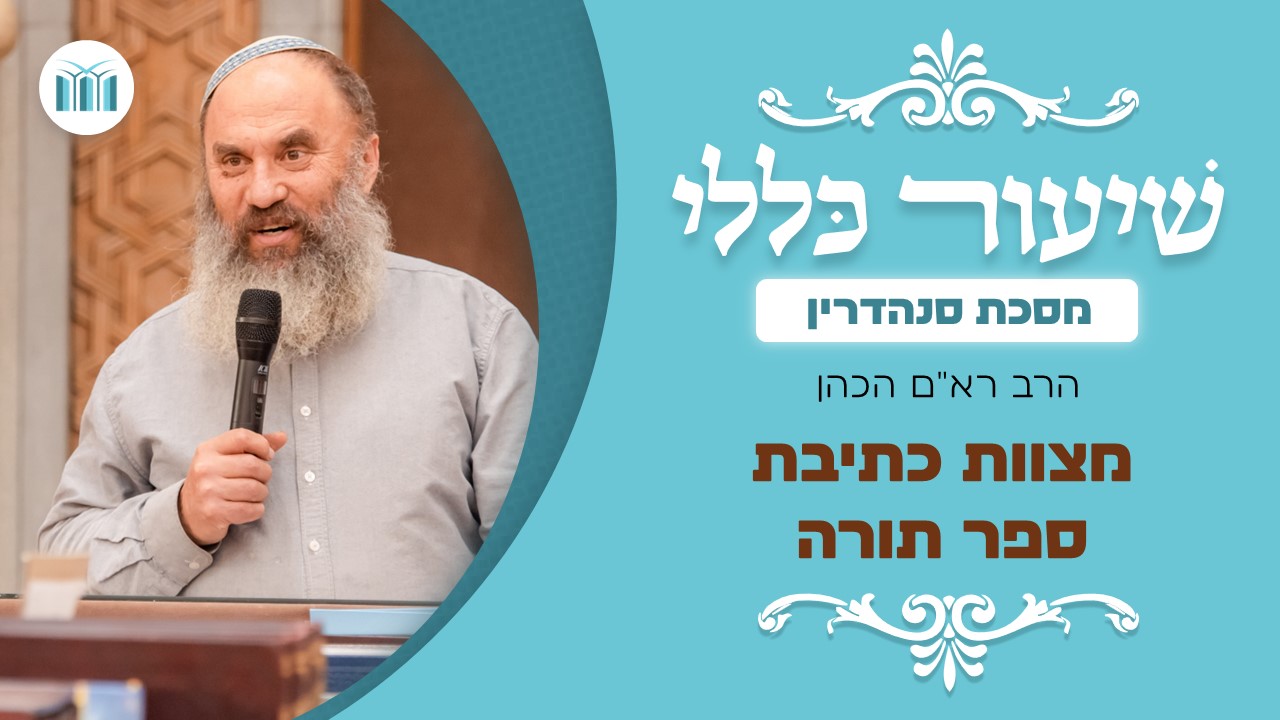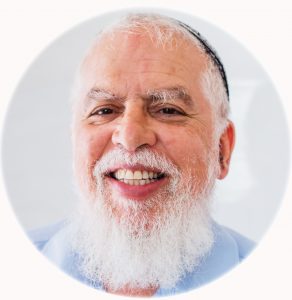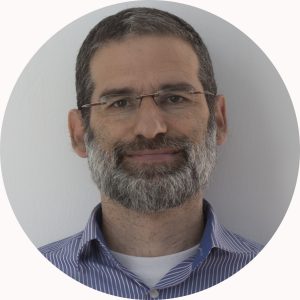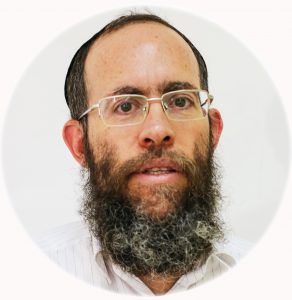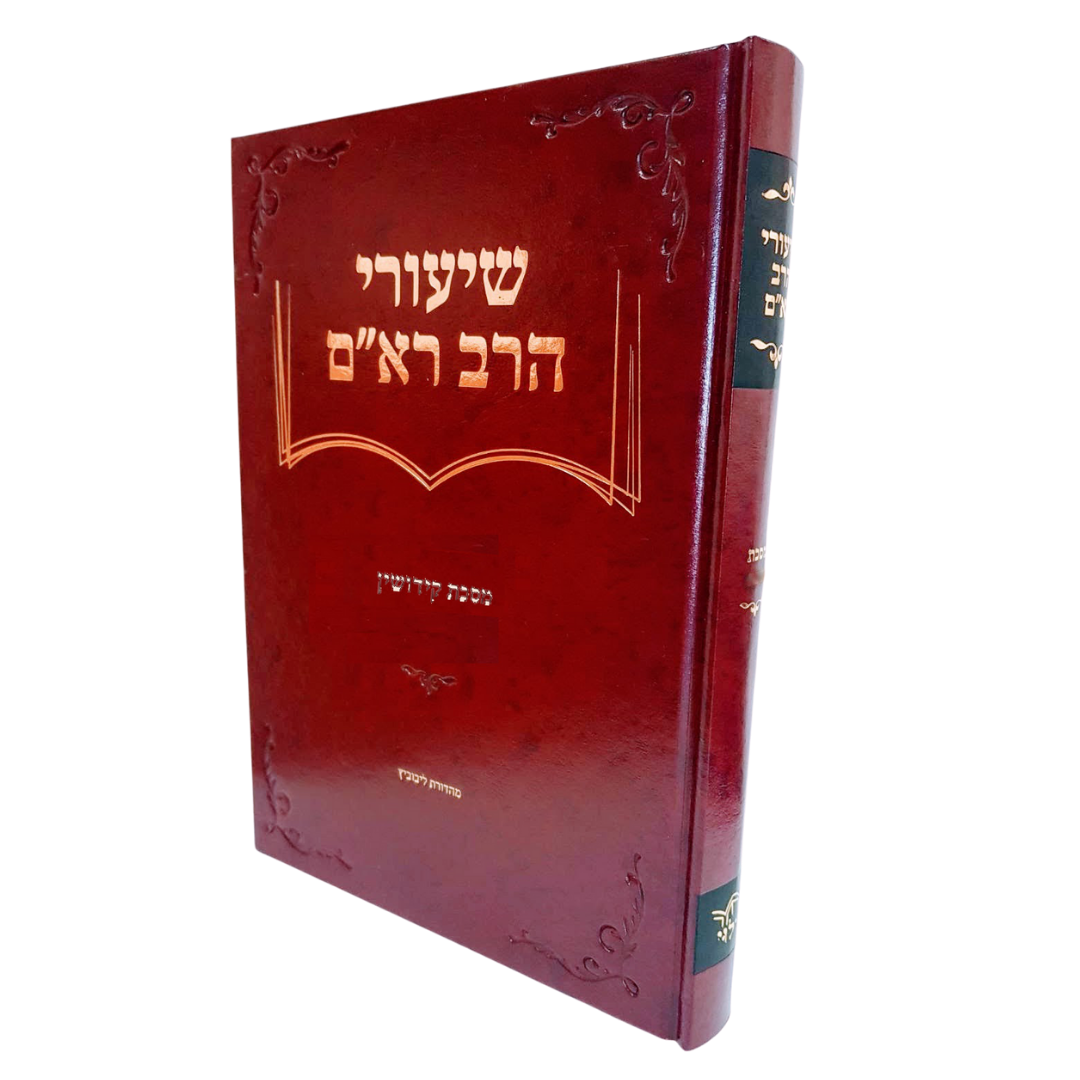נושאים
Translated by Netzach Sapir
Everybody knows that Korach’s strife was bad news for Am Yisrael, but we would be wrong to conclude from the events of our parsha that argument is something to be avoided. In the famous mishna in Pirkei Avot, Korach and his men are held up as the prototype of negative debate, but that same mishna points out positive manifestations of argument as well.
Every argument which is for the sake of heaven will endure, whereas that which is not for the sake of heaven will not endure. What was an argument for the sake of heaven? That of Hillel and Shamai. What was an argument that was not for the sake of heaven? That of Korach and his assembly (Pirkei Avot 5:17).
Differentiating between the two types of arguments is no simple task. My teacher Rav Amital, of blessed memory, explained a further level of complexity in the division the mishna makes. He understood the declaration that an “argument which is for the sake of heaven will endure” to mean that when two parties argue and each side is convinced that he is arguing for heaven’s sake, then neither side will ever give in to the other, and the argument will thereby “endure.” In other words, it will never end. People may be willing to compromise on their personal interests or opinions, but when someone believes he is upholding a sacred truth, when he argues with the pretense of representing G-d, he sanctifies his stubbornness and nothing will make him back down.
The solution cannot be to seek to avoid disagreement at all costs, for disagreement is one of the essential aspects of our identity. What could be more Jewish, more Israeli, than to argue, debate and disagree? As the saying goes, “two Jews, three opinions,” and though this may occasionally be too true to laugh about, to do away with the culture of debate would be lose a significant part of our identity. The Talmud tells a story about Rabbi Yochanan Ben Zakai who, after the death of his long-time chevruta, Reish Lakish, sought to find a suitable study partner to replace him. But all the candidates disappointed him, for whenever he would make a point, they sought to strengthen and reinforce it, as opposed to Reish Lakish, who constantly contradicted him, pointing out the flaw in his reasoning, thereby sharpening Ben Zakai’s understanding. Ultimately, he failed to fill the void left by his chevruta’s passing and tore his clothes, sobbing. The Talmud tells us that because of this, he eventually lost his mind and died (Baba Metzia 84a). We must contemplate the world of arguments in order to differentiate between the destructive strife to be avoided, and the valuable debate we must strive for, which brings blessing to both sides.
All are Equal, but Some are More Equal than Others
Let us turn, now, to our parsha. Korach and his followers challenge Moshe and Aaron, “Everybody in the entire assembly is holy, and G-d among them. Why do you put yourselves above the congregation of G-d?” (Bamidbar 16:3).
Does not this seem to be an awesome, even holy and justified claim? Korach presents a vision of social equality based on the fundamental understanding that all people are holy beings, created in G-d’s image. Only a short while ago, Am Yisrael was called by G-d a “holy nation and a kingdom of priests” (Shmot 19:6). Doesn’t Korach have a point?
In response, Moshe falls on his face and calls for a sign from G-d to determine who is truly meant to lead (Bamidbar 16:4-5). Then he castigates Korach and his ensemble, calling them sinners and wicked men (ibid 26). Why doesn’t he respond to the content of Korach’s claim? No doubt Moshe has plenty to say on the matter, and elsewhere, it even seems that he would agree with some elements of Korach’s claim.
Moshe chose to ignore the content of Korach’s challenge because he understood that Korach himself didn’t believe in the truth of his claims. On the contrary, his true motive was to attain power for himself. By rousing the nation against Moshe, Korach covers up his own intent – to rule in Moshe’s stead. He enlists the populist approach to gain the people’s support, just as in Animal Farm, George Orwell’s satirical allegory about the communist revolution, in which the pigs enlist the support of the farm animals under the motto “all animals are equal,” yet with time, the animals learn the hard way that while all animals are equal, “some animals are more equal than others.”
The proof that Korach himself did not believe in the universal equality which he preached is evident from the very community he assembles in order to make his challenge. Korach and his assembly are already an elite group from within the nation. As Moshe points out, Korach is a Levi and thereby has a special status that sets him apart. The Torah specifies that the two hundred and fifty men in Korach’s crowd were all “princes of the congregation, representatives of the assembly, men of renown” (Bamidbar 16:2). If indeed the spirit of universal equality pumped through Korach’s veins, would not it be fitting for his assembly to include the simple people? He ought to have appealed to them, seeking to lift them up (picture, for example, Brian in Monty Python’s Life of Brian entreating his mass of followers, “You are all individuals!”)[1]
In light of this, we can understand the mishna’s statement in Pirkei Avot, that an argument “which is not for the sake of heaven will not endure.” When an argument is driven by selfish motives, in which the points being made are only a cover for an ulterior goal and the disingenuous debater does not believe his own claims, nothing positive will come of it.
Who am I?
It is easy to look down on Korach for his selfish strife-mongering, but we would do well to examine our own motivations when we argue with others. All too often, when engaged in debate, we find ourselves getting worked up and sometimes angry, even if the issue at hand is impersonal or insignificant and the person with whom we are arguing is someone whom we respect and appreciate. Nonetheless, voices are raised and we become increasingly agitated, until suddenly we find that the argument has possessed us and we are driven by a fierce desire to win, for no particular reason.
Spiritual teacher Ekhart Tolle explains the reason for this strange phenomenon. Tolle believes that a person identifies with his opinions, so much so that sometimes his opinions become the entire source of his identity. Who am I? I am what I think. Therefore, when someone argues with me and opposes my opinion, I experience the debate as a threat to my very being. If my opinions aren’t accepted, then I am not accepted, and if my opinions are rejected, then there is no place for me. An argument thus becomes a struggle for survival, so no wonder tempers flare. If I experience a conflicting opinion as a threat to my existence, then the topic of the argument is immaterial – I must oppose at all costs. These types of arguments are also driven by personal motives, and are not for the sake of heaven. The need to win is an ulterior motive that can even be hidden from the arguer himself, but it damages his ability to have a real dialogue about the topic at hand.
The solution to this phenomenon, suggests Tolle, is the recognition that one’s true identity is greater than the sum of one’s thoughts and opinions and does not depend on them.[2] While there is truth in the direction that Tolle presents, it is also important that a person not allow himself to become estranged from his own opinions. There are some values that do have an existential importance, and to view oneself as separate from those ideas is to separate oneself from life altogether.
I would like to suggest a model in which I see my essential being as separate from the thoughts and opinions I hold. My existence does not depend on my thoughts, and therefore they don’t constitute my essential identity. That being said, my opinions are the realm in which I interact with the world, so even if I don’t depend on them, they are still very important to me. In other words, the danger is when I allow the motion to be from the outside inwards, when my essence is defined by my thoughts. My suggestion is not to disconnect from the external, but to take care that the motion is from the inside outward.
Truth is Inclusive
The proper definition for “debate,” in my eyes, can be found in the Rambam. He defines “for the sake of heaven” to be “seeking truth.” This definition has two cornerstones: truth, and the search for it. When I am positive that I know exactly what is true, and all I have to do is convince my opponent of the error of his ways and to accept the truth as I tell it to him, then we conduct a debate of the deaf. Neither of us is listening to the other, because neither of us is searching. An argument of this has no resolution; it can only deepen the rift. But when a person sees himself as in the process of searching and is open to hear and listen to that which the other side has to say, the argument becomes a place from which to grow. One shouldn’t expect that in the course of an argument someone will abandon their primary principle or thought, but by remaining open, they can gain insight which can enrich their opinion and, through meeting with an alternative point of view, come to a deeper understanding.
A complex comprehension of the concept of truth, as appears in the rabbinic sources and is developed through kabbalah, is vital to this process. After stating that G-d’s stamp is truth, the Talmud Yerushalmi offers an insight into the Hebrew word for truth, emet. It points out that its letters, aleph, mem, and taf, arethe first, middle and last letters of the Hebrew alphabet. Anything which represents only one side is partial, and cannot be wholly true. Truth is comprised of all. To accompany the insight in the Yerushalmi, my father-in-law has pointed out that the letters for the Sheker, lie, are shin, kuf, and reish, three sequential letters that are found at the very end of the alphabet. Lies are one-sided and distorted.
There is a similarity between the Yerushalmi’s approach to truth and the basic kabbalistic approach. Everything contains a spark of G-dliness, and truth is the correct balance between all things. It is interesting to note that the stormiest debates which often rock Israeli society are the arguments between the right and the left, and we would be wise to take to heart the words of the oldest kabbalistic book, Sefer HaBahir. After explaining that Gabriel is the angel of the left side, and Michael is the angel of the right side, it states: “And in the middle is truth, which is Uriel” (Sefer HaBahir, 108).
This doesn’t mean that truth is necessarily a compromise, in which each side is willing to give up on half in order to meet in the middle. The middle is the place which is prepared to accept and acknowledge the positive aspects of each side. This point of view, a contemplation willing to see the good in the opposing side, can bring renewed thinking to what previously seemed to be an intractable problem. This is the attitude which drives these divrei torah: the attempt to harmonize the spirit of the east with that of the west, “being” with “doing,” the human with the Divine, and the idea of an infinite G-d with that of a personal one.
While engaged in debate, it is crucial to make space for the opposing side, at least to the extent to which each side is able to fully express itself. The dialogue creates a place in which each side can understand the values and costs of the opposing perspective within an attempt to build something new from the meeting point between the two views. The kabbalistic model of the inclusivity of truth resembles the philosophical model that Hegel introduced of thesis, antithesis and synthesis. In the first stage the thesis and the antithesis are in conflict, but through that conflict a deeper truth is born – synthesis.
The archetype of positive debate, as the mishna states, is the ongoing disagreement between the house Hillel and the house of Shamai. The gemara says that a heavenly voice descended from on high and called out “This and this are the words of the Living G-d” (Eruvin 13b). This seems a sufficient support to the claim we made earlier – a healthy argument is one in which both sides contain truth. But it goes even further than that. According to the gemara, the reason that the halacha follows the view of Beit Hillel is because of the way they related to their opponents’ opinions. When teaching their students, Beit Hillel would always precede their own opinion with that of Beit Shamai (Eruvin 13b). Unlike Beit Shamai, Beit Hillel believed in the value of including the dissenting opinions, of holding space for opposing truths. As a friend of mine once summed it up, had the halacha followed Beit Shamai, we would not know Beit Hillel’s opinion.
It is the one who recognizes the value of his own opponents’ arguments whose view will ultimately be accepted. Their attitude of humility and acceptance shows why the halacha follows their rule: Beit Hillel holds the deeper truth.
That which is said regarding Hillel and Shamai is true, by and large, of Torah study altogether. The halachic literature – the mishna and the gemara – are built upon a culture of debate, and one who studies it must delve into the dissenting opinions as well, not only those which were accepted. Often, an opinion which was rejected in one context influences the determining of the halacha in a different context, and it is worth noting that the word “halacha” is comprised of the same letters as the word “hachala,” inclusion. This is the reason that many tractates of the Talmud, filled with page after page of debate and disagreement, conclude with the phrase, “students of the sages increase peace in the world” (e.g. at the end of tractate Berachot). It seems that the Talmudic works – whose contents are debate and whose method of study is usually in chevruta (study pairs), a method prone to disagreement and discussion – endure not despite the arguments that fill it, but because of them.
“For the Sake of Heaven:” Peace and Love Above and Below
The kabbalistic meaning of the Hebrew word for “Heaven,” “Shamayim,” gives us a new understanding of the concept of “for the sake of heaven.” Kabbalistically speaking, the heavens correspond to the G-dly attribute of Tiferet, which represents peace and inclusive balance of the right and left sides. The Sefer HaBahir explains:
The word “Shamayim” is a combination of the words “eish,” fire, and “mayim,” water. G-d took fire and water and mixed them together to create the heavens. This was where he began, as it says “the beginning of your word is truth” (Psalms 119:160). He took these two opposites and combined them in love and peace, “he makes peace in the heavens” (Job 25:2). Just as he combines opposites to make peace in the heavens, so may he send us peace and love on earth (Sefer HaBahir, 59, free translation).
Heaven is the place where fire and water can coexist. Holding space for opposing energies creates truth, love and peace. The passage in the Sefer Habahir concludes by saying that just as G-d has made harmony between opposites in the heavens, so may he send us love and peace on earth. A similar idea can be found in the Zohar:
Michael – his foundation is water, Gabriel – his foundation is fire, and the Holy One Blessed Be He made peace between them, as it says “he makes peace in the heavens” (Zohar Vayikra 12a).
Now let us see how the Zohar understands Korach’s debate. It begins (Bereshit 1 17a) by examining the cosmological proceedings of the beginning of creation. On the second day, G-d created the sky by separating the waters above from the waters below. The Midrash says that the second day did not close with G-d’s reflection, “that it was good,” because that was the day in which separation and the potential for strife was created (Bereshit Raba 4,6). One of the consequences of this separation, the division of reality into two, was the creation of gehinom, the lower world. But creation continued and in the space made by the division, existence flowered, sending gehinom down to the netherworld. Unlike the cosmological process, Korach’s debate was not for the sake of heaven; it created division, but didn’t follow up with growth. Division for its own sake summons the birth of the original division – gehinom – which rose from the depths to swallow Korach and his followers.
[1] The irony of the story is that the man whom the Torah describes as humbler than all men (Bamidbar 12:3), the man who loves the nation and seeks truly to lift them up and strengthen them, is attacked with the claim that he places himself above them, while his attackers are motivated by the very desire to be placed above the nation. How appropriate is Korach’s punishment – to fall into the depths of the earth while the ground opens wide its mouth to swallow him.
[2] This principle is the foundation of the spiritual worldview he describes in his books, the most basic of which is The Power of Now.







